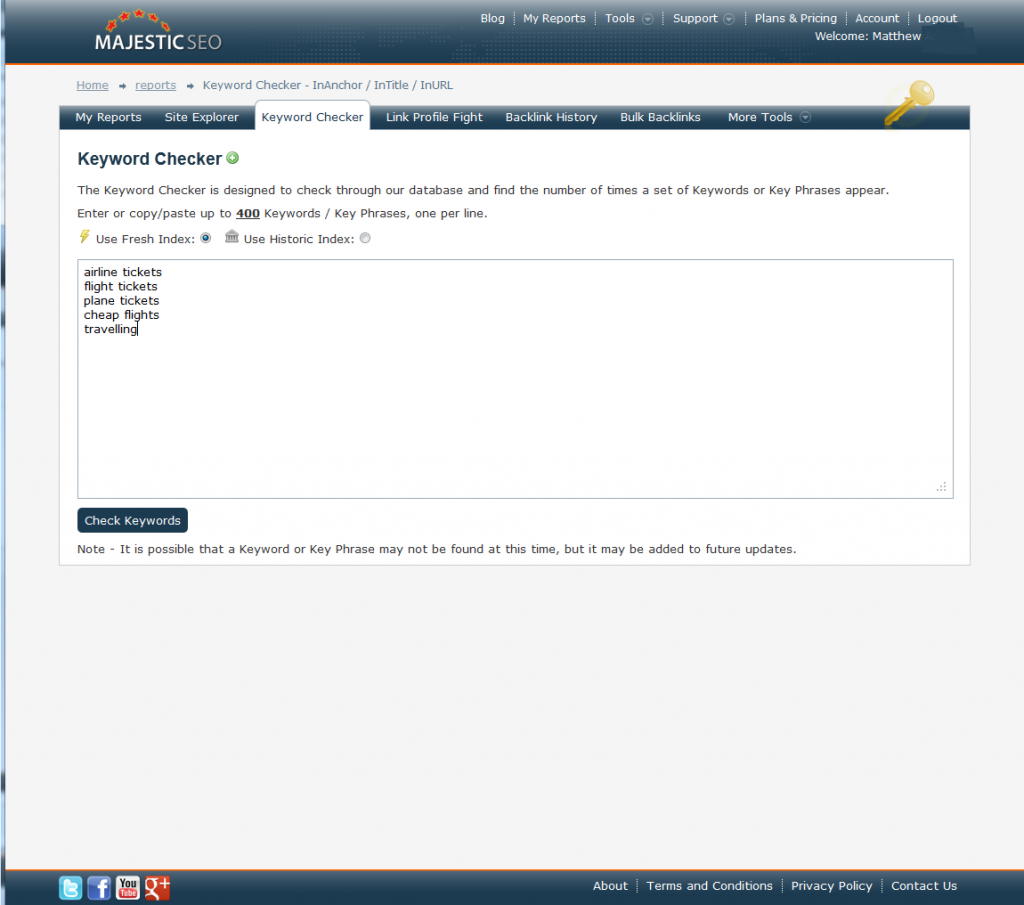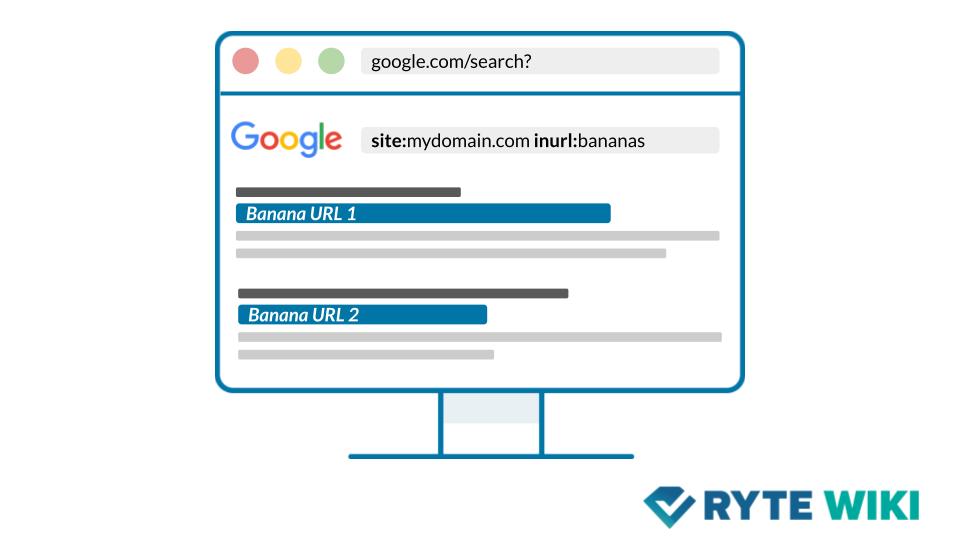InURL Keyword: Unlocking The Power Of SEO Through Strategic URL Optimization
Sometimes, it's the hidden gems in plain sight that make all the difference. If you're diving into the world of SEO or trying to boost your website's visibility, you might've come across the term "inurl keyword." It's like a secret code, a magic formula that can transform how search engines perceive your site. In this article, we'll break down what inurl keyword means, why it matters, and how you can use it to skyrocket your search engine rankings. Let's get started, shall we?
InURL keyword isn't just some fancy jargon; it's a practical strategy that can significantly impact your website's performance. When search engines like Google crawl your site, they look for specific signals to determine its relevance. One of those signals is the presence of targeted keywords in your URL structure. It's like giving Google a roadmap to understand what your page is all about. So, if you're serious about SEO, paying attention to inurl keyword is a must.
Now, you might be wondering, "Why should I care about this inurl keyword stuff?" Well, here's the deal: in today's competitive digital landscape, every little advantage counts. By optimizing your URLs with relevant keywords, you're not only helping search engines but also making it easier for users to understand what your page offers. And let's face it, when users have a clear idea of what they're clicking on, they're more likely to stick around. That's where the magic happens.
Read also:Discover Corey Feldman Net Worth Age And Personal Life 2023
What Exactly is InURL Keyword? Let's Break It Down
Alright, let's dive deeper into the nitty-gritty. InURL keyword refers to the practice of incorporating relevant keywords into your website's URL structure. It's like labeling your files in a way that both humans and search engines can easily understand. For instance, instead of having a URL like "www.yourwebsite.com/page123," you could have something like "www.yourwebsite.com/best-seo-tips-for-2023." See the difference?
Why Does InURL Keyword Matter in SEO?
Here's the kicker: search engines love clarity. When they see a URL that clearly indicates the content of the page, they're more likely to rank it higher in search results. Plus, users appreciate it too. Imagine seeing a URL that tells you exactly what you're going to find on the page. It builds trust and increases the chances of a click-through. That's why inurl keyword is such a powerful tool in your SEO arsenal.
The Benefits of Optimizing InURL Keywords
Let's talk about the perks. When you optimize your URLs with relevant keywords, you're essentially ticking multiple boxes:
- Improved search engine visibility
- Enhanced user experience
- Better click-through rates
- Increased trust and credibility
Each of these factors contributes to the overall success of your website. It's like building a strong foundation that supports all your digital marketing efforts.
How InURL Keywords Impact User Experience
User experience (UX) is a big deal these days. Search engines are all about providing the best possible experience for their users. By using inurl keywords, you're giving users a sneak peek into what they can expect from your page. It's like a little teaser that entices them to click. And when they land on your page, they're more likely to stay if the content matches their expectations. That's the power of a well-optimized URL.
Best Practices for InURL Keyword Optimization
Now that you know why inurl keywords are important, let's talk about how to do it right. Here are some best practices to keep in mind:
Read also:Unveiling The Mysteries Of Sone 436 Plot A Comprehensive Guide
- Keep URLs short and concise
- Use hyphens to separate words
- Avoid using unnecessary parameters
- Make sure URLs are easy to read
- Align URLs with page content
These tips might seem simple, but they can make a huge difference in how your URLs are perceived by both search engines and users.
Avoiding Common Mistakes in InURL Keyword Optimization
While optimizing your URLs, it's essential to avoid some common pitfalls. For instance, don't stuff your URLs with too many keywords. It can come across as spammy and hurt your rankings. Also, avoid using overly complicated structures that might confuse users. Remember, the goal is to make your URLs clear and user-friendly.
Tools to Help with InURL Keyword Optimization
Thankfully, there are plenty of tools out there to help you with inurl keyword optimization. Some popular ones include:
- Google Search Console
- SEMrush
- Ahrefs
- Moz
These tools can provide valuable insights into your website's performance and help you identify areas for improvement. They can also suggest relevant keywords to incorporate into your URLs.
Using Google Search Console for InURL Keyword Analysis
Google Search Console is a game-changer when it comes to inurl keyword optimization. It provides detailed reports on how users are finding your site and which keywords are driving traffic. By analyzing this data, you can refine your URL structure and improve your SEO strategy.
Case Studies: Real-World Examples of InURL Keyword Success
Let's take a look at some real-world examples where inurl keyword optimization has made a difference. For instance, a small e-commerce site that incorporated relevant keywords into their product URLs saw a 30% increase in organic traffic within six months. Similarly, a blog that optimized its URLs for targeted keywords experienced a significant boost in click-through rates.
Lessons Learned from InURL Keyword Case Studies
These case studies highlight the importance of strategic inurl keyword optimization. They show that even small changes can lead to big results. The key is to be consistent and data-driven in your approach.
Advanced Techniques for InURL Keyword Optimization
For those looking to take their inurl keyword optimization to the next level, here are some advanced techniques to consider:
- Use keyword variations to avoid over-optimization
- Align URLs with user intent
- Test different URL structures to see what works best
- Monitor performance regularly and make adjustments as needed
These techniques require a bit more effort, but they can yield significant rewards in terms of improved rankings and increased traffic.
Aligning InURL Keywords with User Intent
User intent is a crucial factor in SEO. By aligning your inurl keywords with user intent, you're ensuring that your pages are relevant and valuable to your audience. For example, if someone is searching for "best SEO tips," your URL should reflect that intent and lead them to a page that provides exactly what they're looking for.
Measuring the Impact of InURL Keyword Optimization
Once you've implemented your inurl keyword strategy, it's important to measure its impact. Key metrics to track include:
- Organic traffic
- Click-through rates
- Bounce rates
- Conversion rates
By analyzing these metrics, you can assess the effectiveness of your strategy and make data-driven decisions for future optimization.
Tools for Measuring InURL Keyword Performance
In addition to the tools mentioned earlier, you can also use Google Analytics to track the performance of your URLs. It provides detailed insights into user behavior and can help you identify which URLs are driving the most traffic and engagement.
Conclusion: Why InURL Keyword Matters for Your SEO Strategy
So, there you have it. InURL keyword optimization is a powerful strategy that can significantly impact your website's SEO performance. By incorporating relevant keywords into your URLs, you're not only improving your search engine rankings but also enhancing the user experience. Remember, every little detail counts in the world of SEO, and inurl keyword is one of those details that can make a big difference.
Now, it's your turn to take action. Start optimizing your URLs today and see the results for yourself. And don't forget to share your thoughts and experiences in the comments below. Let's keep the conversation going!
Table of Contents:
- What Exactly is InURL Keyword?
- Why Does InURL Keyword Matter in SEO?
- The Benefits of Optimizing InURL Keywords
- How InURL Keywords Impact User Experience
- Best Practices for InURL Keyword Optimization
- Avoiding Common Mistakes in InURL Keyword Optimization
- Tools to Help with InURL Keyword Optimization
- Using Google Search Console for InURL Keyword Analysis
- Case Studies: Real-World Examples of InURL Keyword Success
- Lessons Learned from InURL Keyword Case Studies
- Advanced Techniques for InURL Keyword Optimization
- Aligning InURL Keywords with User Intent
- Measuring the Impact of InURL Keyword Optimization
- Tools for Measuring InURL Keyword Performance


